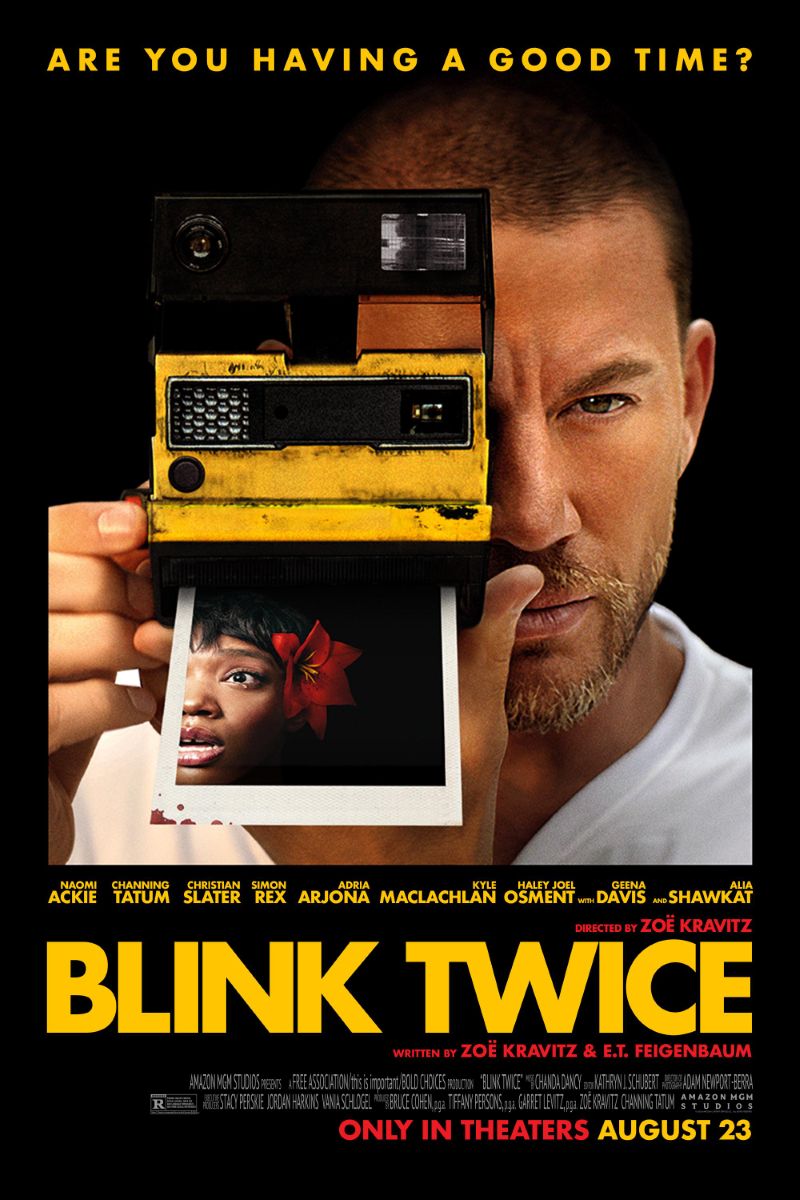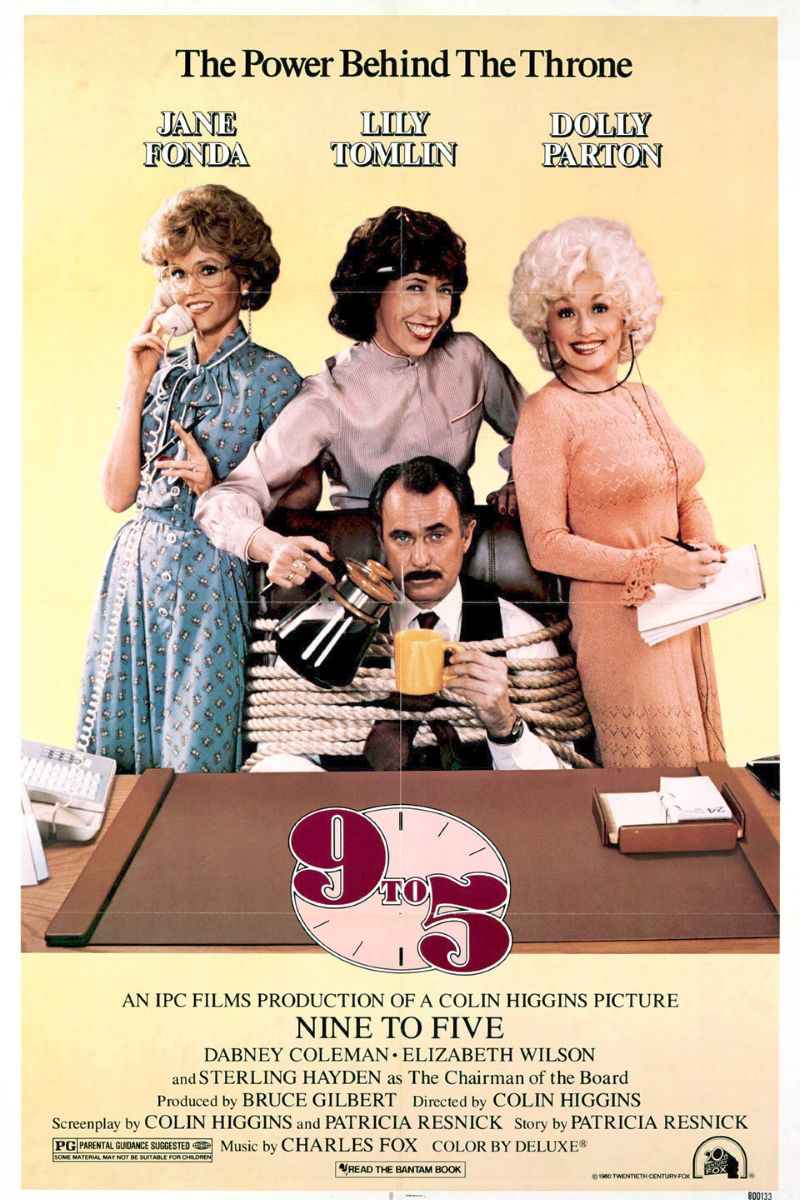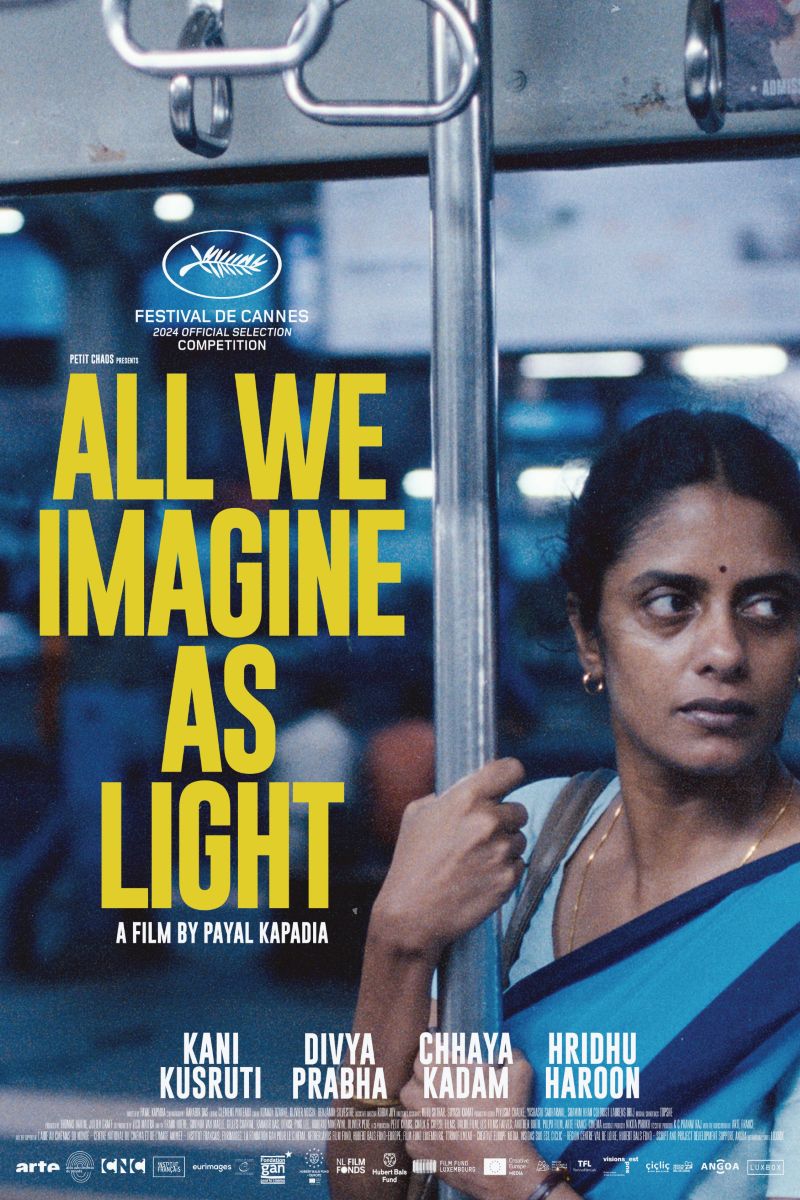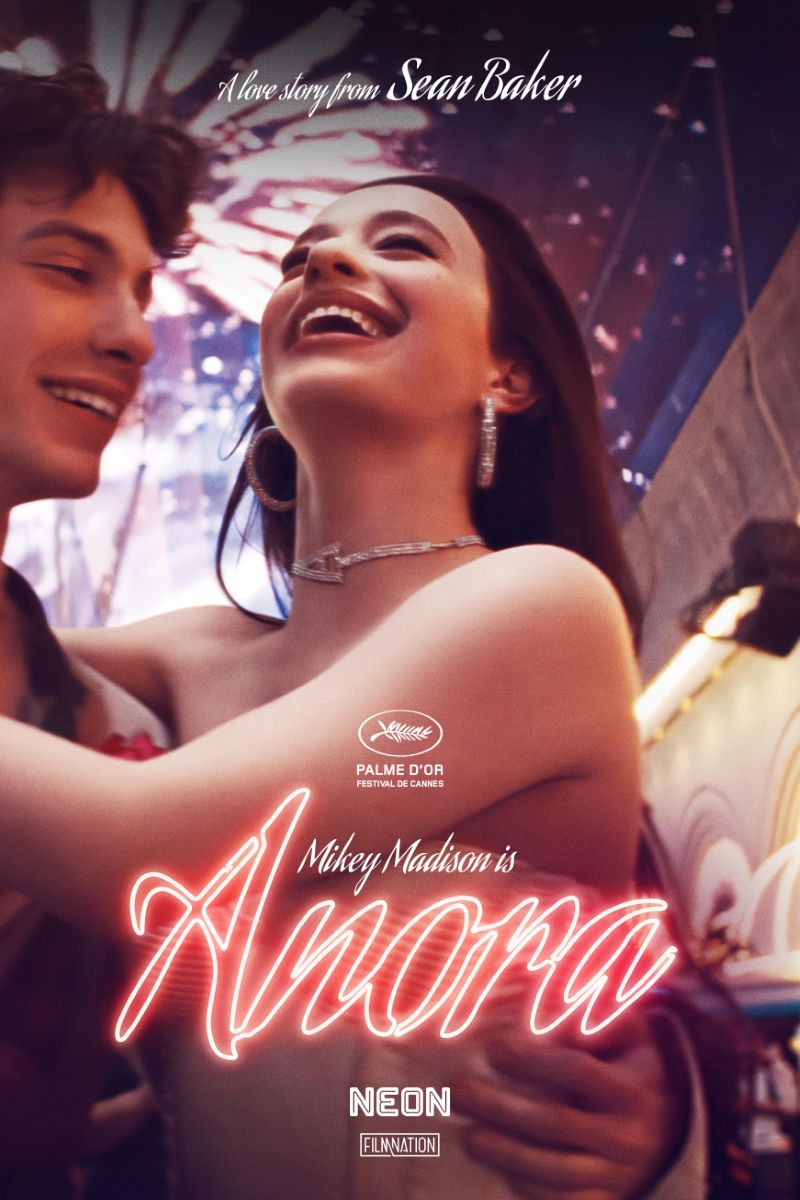
Blink Twice
Blink Twice
Zoë Kravitz's directorial debut, a psychological thriller starring Naomi Ackie and Channing Tatum. Following cocktail waitress Frida who is invited to tech billionaire Slater King's private island vacation, only to discover the men on the island are plotting sinister activities. The film deeply explores crucial issues including power abuse, sexual violence, collective trauma, female solidarity, and elite corruption, showcasing women's awakening and resistance when facing systemic oppression.
Cast
Related Topics
🎥 Film Analysis & Review
Blink Twice represents Zoë Kravitz’s directorial debut, a psychological thriller that establishes itself as one of the most important feminist films of the #MeToo era through its sharp critique of contemporary power structures and sexual violence. Through cocktail waitress Frida’s (Naomi Ackie) terrifying experiences on tech billionaire Slater King’s (Channing Tatum) private island, the film profoundly reveals how wealthy elites use power and wealth to commit sexual violence, manipulate memory, and suppress survivors’ voices. This is not merely an entertaining thriller but a powerful indictment of contemporary power abuse and gender oppression.
From an anti-sexual violence perspective, Blink Twice’s most important contribution lies in its systematic exposure of elite sexual violence and nuanced presentation of survivors’ trauma experiences. Through the isolated island setting, the film demonstrates how powerful men create completely controlled environments to perpetrate violent acts. Slater King and others use drugs, memory manipulation, and psychological control to transform female guests into helpless victims. This portrayal not only reflects real-world criminal methods of powerful men but reveals the systematic and premeditated characteristics of such crimes.
Naomi Ackie’s performance demonstrates the complete psychological journey from confusion and denial to awakening and resistance. She successfully presents how trauma affects memory and cognition, and how survivors struggle to piece together truth amid chaos and fear. Ackie avoids the trap of reducing Frida to a helpless victim, instead showing her resilience, intelligence, and ultimate capacity for retaliation. This complex characterization provides a powerful representative image for other sexual violence survivors.
Channing Tatum’s Slater King is an extremely dangerous antagonist representing elite men who use social status and wealth to cover criminal behavior. Tatum’s performance demonstrates such men’s dual nature: superficially charming and successful, actually cold manipulators and abusers. This character design directly echoes real-world characteristics of many exposed powerful male sex criminals, from Harvey Weinstein to Jeffrey Epstein.
Zoë Kravitz’s directorial approach skillfully combines psychological thriller with social critique. She employs abundant visual metaphors and symbolic techniques to represent women’s manipulation and resistance processes. The island’s tropical paradise exterior contrasts sharply with its internal horrific reality, reinforcing the film’s critique of hidden evil beneath surface prosperity. Kravitz also cleverly uses memory fragments and time jumps to simulate survivors’ trauma experiences.
From a class analysis perspective, the film profoundly reveals how wealth and power are used to commit and cover crimes. Slater King’s private island is not only a luxurious vacation destination but a lawless territory where ordinary legal and moral norms lose effectiveness. This setting reflects how wealthy elites in reality use resources to create favorable environments, escaping legal sanctions and social oversight. Through this extreme presentation, the film reveals how economic inequality exacerbates sexual violence and power abuse.
The film’s portrayal of female solidarity and mutual support is particularly important. When Frida begins awakening and recognizing truth, connections with other female victims become key to their survival and resistance. These women combat male manipulation and violence through sharing memory fragments, mutual reminders, and collective action. This solidarity isn’t natural but formed under extreme circumstances, making it more precious and powerful.
The film’s treatment of trauma and memory is both scientific and sensitive. By showing how drugs affect memory formation and recall, the film reveals predicaments sexual violence survivors often face: memory ambiguity and incompleteness are often used to question their testimony. The film demonstrates that even when memory is artificially manipulated, body and subconscious still retain trauma traces that ultimately guide survivors to discover truth.
From a mental health perspective, the film shows how trauma affects individual cognition and behavior. Frida’s awakening process isn’t linear but full of repetition and struggle. This authentic presentation helps audiences understand trauma recovery’s complexity and why many survivors need time to fully recognize and report their experiences.
The film’s visual design serves thematic expression. Bright tropical colors and luxurious scene design create false paradise feelings, while contrast between beautiful appearance and underlying horror enhances the film’s psychological impact. Photography and editing techniques are also used to represent characters’ inner states and memory fragmentation.
From a political awakening perspective, Frida’s transformation represents the politicization process from personal victimization to collective action. She transforms from passive victim to active resister; this change is not only personal growth but political consciousness awakening. She begins understanding her experience isn’t isolated personal encounter but part of systematic oppression.
The film’s critique of tech power is also important. Slater King as tech billionaire represents one of contemporary society’s most influential power forms. The film suggests how tech elites use resources and influence to escape responsibility and manipulate others. This critique appears particularly relevant against the backdrop of frequent tech giant scandals.
The film’s title “Blink Twice” itself carries profound symbolic meaning. In the film, this action becomes a distress signal among women, symbolizing possibilities for communication and resistance in oppressive, controlled environments. This subtle but important communication method embodies survivors’ intelligence and survival instincts.
From an intersectional feminism perspective, the film shows how women from different backgrounds establish connections through shared victimization experiences. Differences among them don’t hinder solidarity but form powerful collective strength when facing common danger. This presentation avoids homogenizing women’s experiences.
The film’s exploration of justice and revenge is also complex. Final retaliation is not only personal revenge but response to systematic injustice. Women’s actions serve both as self-defense and prevention of more potential victims suffering similar fates. This complex moral framework reflects justice predicaments sexual violence survivors face in reality.
From a feminist film theory perspective, the film demonstrates how horror can serve as a vehicle for feminist critique. The genre’s conventions of entrapment, revelation, and final confrontation become metaphors for women’s experiences under patriarchal oppression and their potential for resistance and liberation.
The film’s treatment of memory and agency is particularly sophisticated. It shows how systematic gaslighting and memory manipulation are tools of oppression, while also demonstrating the resilience of women’s memories and their ability to piece together truth despite attempts to erase their experiences.
The island setting functions as both literal location and metaphorical space representing the isolation and vulnerability women experience when confronting powerful predators. The beautiful facade hiding sinister reality reflects how privilege and wealth can mask abuse and exploitation.
The film’s exploration of complicity and bystander behavior is nuanced, showing how systems of abuse rely not just on perpetrators but on networks of enablers and those who choose silence over action. This examination extends beyond individual responsibility to institutional and cultural complicity.
Ultimately, Blink Twice’s value lies in its courageous exposure of contemporary power structures and sexual violence and powerful presentation of women’s resistant spirit. Through Frida’s story, the film demonstrates that even in the most desperate situations, women can still find strength for awakening, solidarity, and retaliation. It reminds us that sexual violence is not only individual crime but a product of power inequality requiring systematic social change to address. As the #MeToo movement continues advancing today, such works provide important cultural resources and spiritual strength for understanding and combating sexual violence. Through this debut work, Zoë Kravitz proves young female directors’ talent and courage in handling complex social issues, making important contributions to feminist cinema development.
🏆 Awards & Recognition
- • DGA Theater Los Angeles Premiere
- • Amazon MGM Studios Distribution
- • Toronto International Film Festival Screening
- • Critics Choice Award Nomination
⭐ Ratings & Links
Related Recommendations
Comments & Discussion
Discuss this video with other viewers
Join the Discussion
Discuss this video with other viewers
Loading comments...



